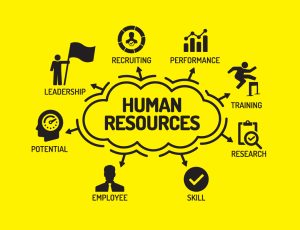
Enable Group | Apr 28, 2021
Blog, For Employees ● 3 min read
Definition:
Stereotypically, White-collar refer to jobs that are performed in an office environment while blue-collar jobs are manual or trade-related labour.
Whilst the underlying reason for work may be the same for both sets of employees; higher positional power, higher income, yet the way to manage these 2 groups of employees within the same organization will differ greatly.
According to Abraham Maslow’s Hierarchy of Needs Theory, knowledge workers (which are the white-collar employees referred to in this article) are motivated by matters such as self-actualization, learning, and understanding needs, as compared to matters like lower-level security and safety needs.
In addition, Frederick Hertzberg’s Hygiene and Motivation Theory, knowledge workers are motivated by the need for achievement and the quality of their work, as compared to compensation, benefits, and working conditions.
These in theory highlight some fundamental differences in managing the white and blue-collar employees in your organization.
Here are a few keynotes on what is important when managing these 2 sets of employees
White-collar workers’ sense of work achievement and the need to make a meaningful contribution to the organization cannot be underestimated.
Tasks that include analytical opportunities for the company to grow, or troubleshooting major problems; such as new innovative ideas, business continuity plans, will keep them engaged in their jobs.
Continuous innovation should be embedded into employees’ job scope as part of strengths and weakness assessment.
While the white-collar employees do not experience physical stress during their work, unlike their blue-collar counterparts, in a study conducted in 1993, both categories of workers were observed for their behavior, the level of subjective stress, and objective strain during work and leisure time.
In one of the questionnaires, comparatively, the white-collar workers reported having significantly more stress at work and after office hours, which emphasizes the fact that things like mental wellbeing are crucial in their working environment.
Similarly to their white-collar colleagues, constant development in their jobs is important to the blue-collar employees too.
When it comes to skills upgrading for blue-collar employees, there are plenty of areas that can be designed for them. For example, warehouse workers have the chance to learn new inventory software instead of relying solely on manual stock takes, or to provide Microsoft Excel training so that they can understand the reports they work with.
It’s also important to understand that blue-collar workers view their jobs differently from office-based employees. To them, “a career has a different meaning where ‘career’ equals ‘being a professional.’ They may not aspire to fill up management roles but they want to be recognised as professionals in their own right and be respected as one.
It is easy to think that truck drivers are unsophisticated and unlearned which is not true. Firstly it takes special skills to be able to drive and maneuver a huge vehicle. It also takes a lot of experience and professional ability to know the optimal route to take, to deliver the goods on time with no damage.
Not that these points are absent for the white-collar employees, but these are defining for the blue-collar ones.
While they also look out for intrinsic things such as a sense of achievement, recognition, respect for their work, the true sense of value comes in the form of compensation & benefits for the blue-collar workers. So having a salary scheme that is competitive in the market and emphasizing to them that they are well compensated for their work is important to retain these employees.
Additionally, the working conditions that they operate in are also important for them. Due to the nature of many of their work, safety is a key matter for them. Companies should show that they are putting more effort to safeguard the physical wellbeing of their blue-collar employees than just the minimum compliance that they need to adhere to due to regulatory requirements.
Established in 2013, enable Consulting is a specialised HR solutions provider for small and medium-sized enterprises.
We believe that having a strong and robust HR function is a key driver for continuous growth in any successful business. It is on this belief that we have built many successful partnerships with clients across different industries.
We are a people business and it is our talent pool that defines us. Each and every one of our consultants is highly professional with many years of experience in HR management and services.
Our Consultants are PMC certified to further be able to help local SMEs improve and optimise their HR operational efficiency through Singapore Grants. enable is about offering affordable, high value adding solutions to improve business performance; while at the same time nurturing and inspiring a fair and respectful working environment. But above all, enable is about enabling you.
Contact us for a non-obligatory Q&A consultation today

Enable Group | Apr 23, 2018
Times have changed. Let technology help you, HR, resolve the pressing HR challenges in 2018. Find out how here: https://www.hrdmag.com.sg/features/meeting-2018s-hr-challenges-247754.aspx #enableconsulting #hrconsulting #hrsolutionsprovider
Blog, For Employees • < 1 min read

Enable Group | Jul 12, 2018
The Singapore wage top-up scheme for low-paid workers, known as the Workfare Income Supplement or WIS in short, is scheduled for a review by next year, given that the last review was done in 2016. Read more about this in the Channel News Asia report: #enableconsulting #hrconsulting #hrsolutionsprovider #singaporehrupdates
Blog, For Employees • < 1 min read

Enable Group | Jan 10, 2019
Gaining the capabilities and the cultural readiness to fail fast but learn faster and continuously innovate new solutions are critical elements of HR’s new mind-set. http://www.humanresourcestoday.com/?open-article-id=9550336&article-title=mind-set-over-matter&blog-domain=deloitte.com&blog-title=bersin-with-deloitte #HR #mindset #digitaltechnologies #newsolutions #HRfunctions
Blog, For Employees • < 1 min read